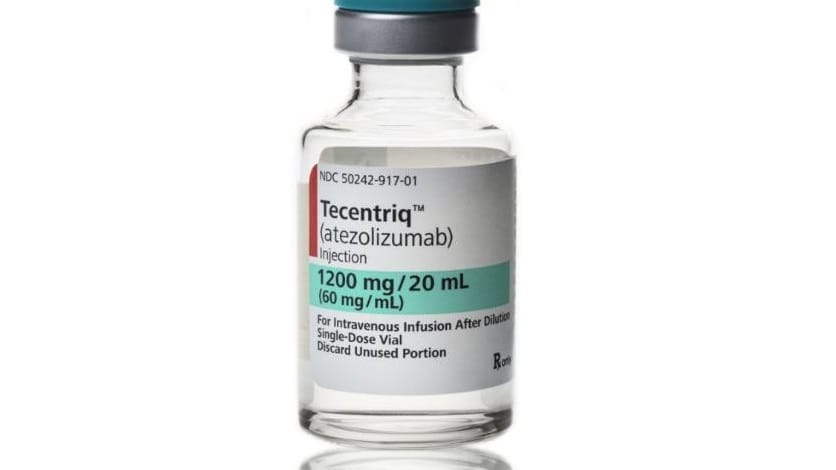
Roche has gained EU-wide approval for Tecentriq in combination with chemotherapy as a treatment for patients with metastatic PD-L1 positive triple negative breast cancer (TNBC).
Tecentriq is the first of the checkpoint inhibitor immunotherapies to gain approval in the setting, first in the US in March this year, and now in Europe.
This will help it to carve out a stronghold within the highly competitive immuno-oncology market, where Merck & Co/MSD’s Keytruda has emerged as the runaway market leader, largely thanks to its lead in non-small cell lung cancer (NSCLC).
The approval is based on the phase 3 IMpassion130 study, which showed only modest improvements in progression-free survival (PFS) in all TNBC patients, but showed a significant 10 month improvement in overall survival in the PD-L1 positive subgroup.
TNBC is an aggressive and hard-to-treat subtype of breast cancer, representing around 15% of all breast cancer worldwide, approximately 300,000 cases every year.
Patients who are PD-L1 positive represent a subgroup of about 40% of this total.
So far Tecentriq’s rivals in the market have failed to match its results in TNBC, which will help it build a lead in the therapy area, which it estimated last year could earn it between $500m and $1bn in additional revenues.
The scale of those revenues will very much depend on how far Roche can extend its use beyond this first setting in combination with Abraxane. However the limited benefits for non PD-L1 patients in the phase 3 trial suggests potential for expansion could be limited.
Oncologists say there is still debate about what the best chemotherapy backbone is for anti-PD-L1 treatment is, leaving room for rivals to challenge Tecentriq plus Abraxane, as well as introducing new biomarkers to clarify which patients could benefit.
Roche has a novel therapy in its late stage pipeline for TNBC, ipatasertib (RG7440), a small molecule pan-Akt inhibitor. It is in a phase 3 monotherapy study, with a readout expected next year, and also in phase 1 in combination with Tecentriq and Taxane.
Another trial of Tecentriq in a neoadjuvant setting (Impassion-131 trial) has had its readout delayed from earlier this year to September 2020.
Since its first approval, Tecentriq has continued to help drive growth for Roche, and saw its revenues rise 141% in the first half of 2019 to $787m.
Other areas for planned expansion include previously untreated locally advanced or metastatic urothelial carcinoma (mUC), where Roche has just reported positive phase 3 results.




